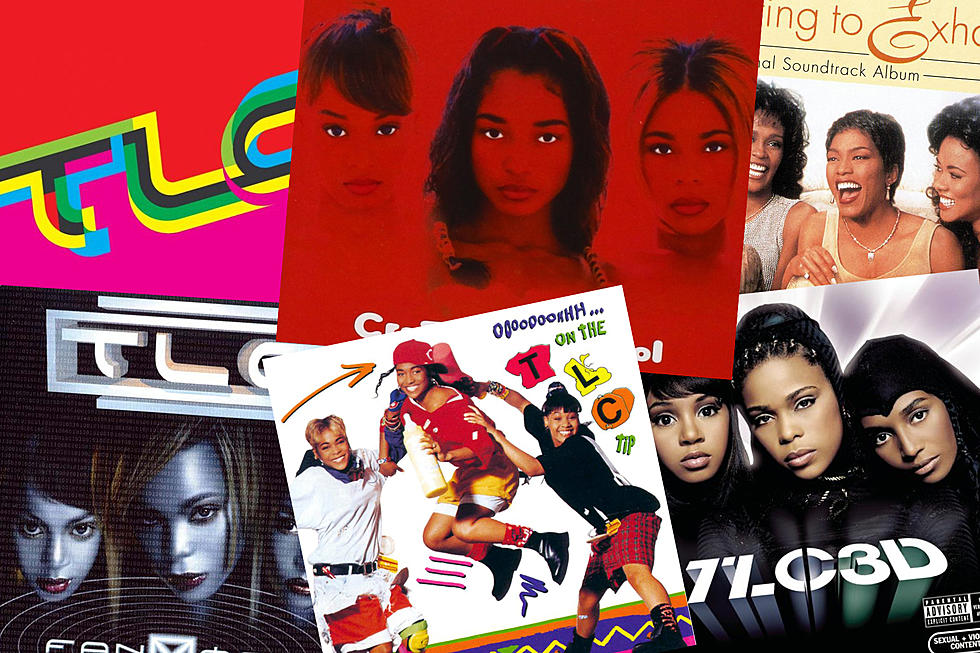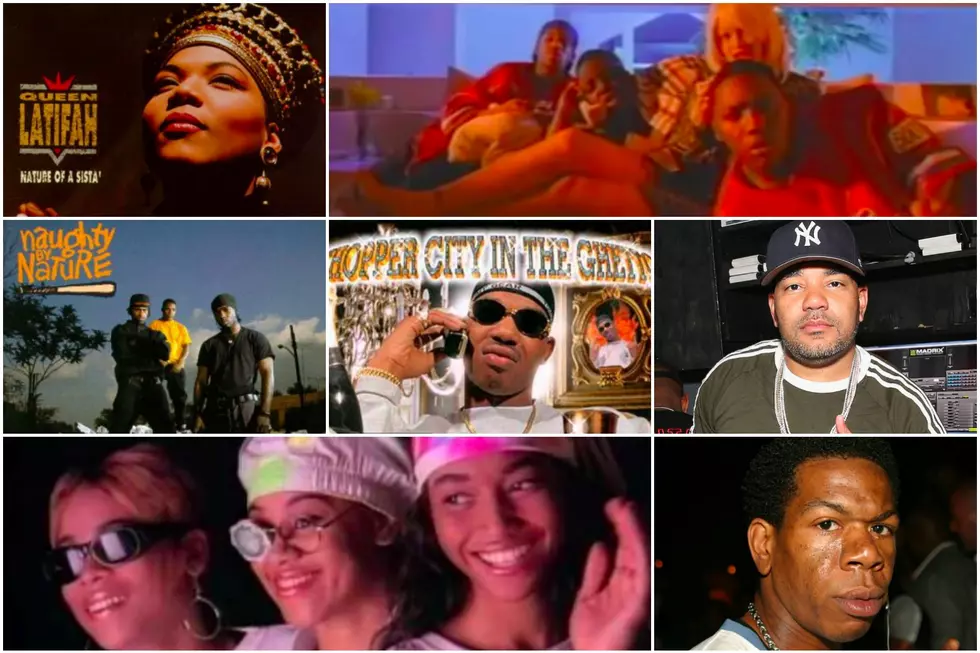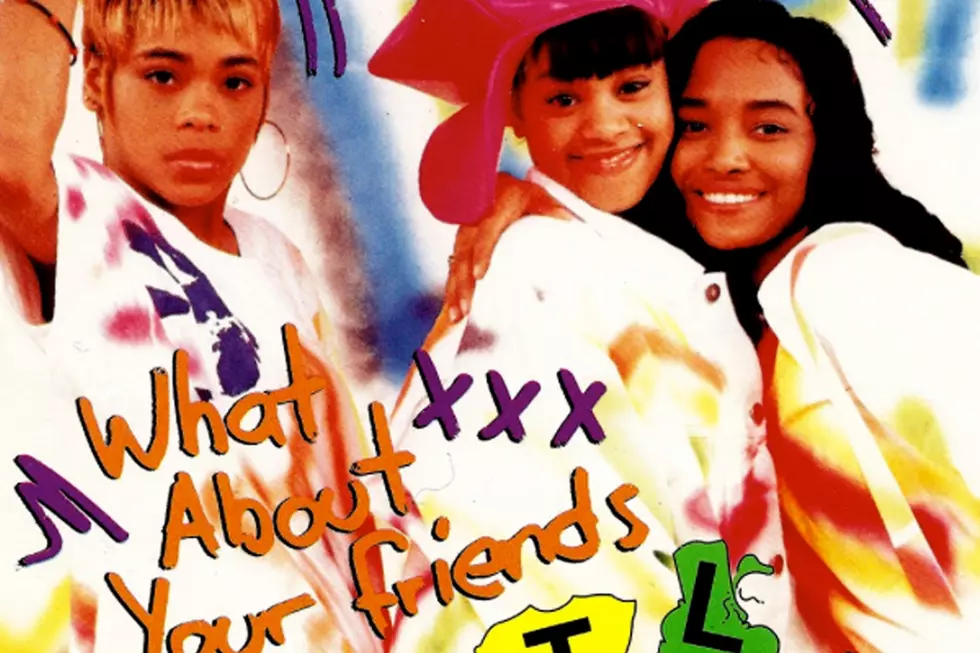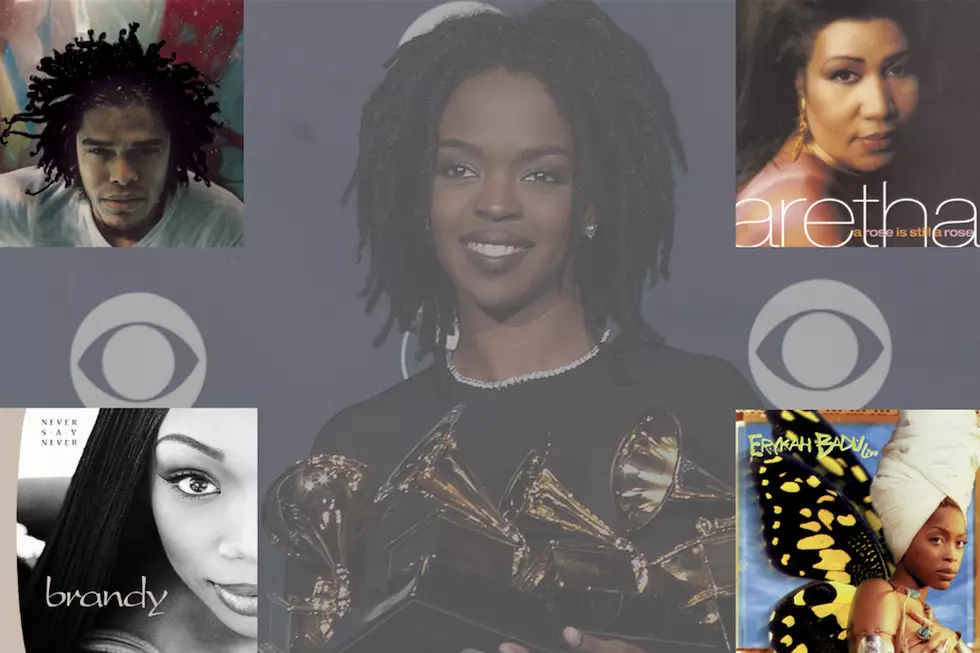
How ‘The Miseducation’ Influenced the R&B Landscape, Creativity
On the 20th anniversary of The Miseducation of Lauryn Hill, two of the biggest songs in rap - Drake’s “Nice for What” and Cardi B’s “Be Careful” - were inspired by Hill’s beautiful lovelorn ballad “Ex-Factor.” Other rappers like Fabolous, J. Cole, Rapsody, Meek Mill and others have also sampled songs from The Miseducation, making it clear that hip-hop has a love affair with the album.
But Lauryn Hill’s masterpiece also left a profound impression on R&B artists as well, especially with her songwriting. Hill was only 23 years old and pregnant with her second child, Selah Marley, when she recording Miseducation (she had just given birth to her first child Zion David a year prior). This explains the album’s honest subject matter of womanhood and events that defined her life, particularly motherhood (“To Zion”) and the breakup with ex-Fugee member Wyclef Jean (“Lost Ones” and “Ex-Factor”).
“When some people are pregnant, their hair and nails grow; my creativity and my work ethic just expanded,” Hill told Paper magazine in June about the creative process for The Miseducation. “I was nuts before but I just became extra nuts, like I felt like I've got a multitude to do, x, y and z.”
“I took a little bit of downtime but it wasn't very long, maybe a couple of weeks, and then I got back into the studio,” she continued. “But I made a commitment very early to music and family and when you love something so much, it's almost like a relationship. If it's someone you really want to speak to, you make time.”
It’s Hill’s honesty that was a revelation for John Legend who played piano on “Everything Is Everything.” He was a college student at the University of Pennsylvania at that time when he was invited to a studio session with Hill. “Lauryn had that blend of toughness and soulfulness, melody and swagger,” he told Rolling Stone in 2008. “She did it better than anybody still has done it. People are still trying to capture that moment.”
Legend also took notes and you can hear his honesty on his emotional ballads like "Ordinary People" and "All of Me," which have resonated with people all over the world.
Philadelphia songbird Jazmine Sullivan was only 11 years old when she first heard The Miseducation of Lauryn Hill and it left a profound effect on her back then. When Sullivan started her R&B career, she made it a point to be honest in her songwriting. Songs like the revenge-fantasy track "Bust Your Windows” and the reggae-infused "Need U Bad” (from her 2008 debut album Fearless) comes out of the songwriting school of The Miseducation.
"Even at age 11, I knew there was something different about this album. It drew me in immediately, more than anything that was being played at the time. It felt classic,” Sullivan recently told Billboard magazine. “Most albums at the time seemed to be over-produced -- every riff and phrase perfectly constructed. But Lauryn's just felt like it was flowing from her soul.”
"My style of background vocals are a lot like hers: I kept it simple and just let the voice and the three-part harmony do the work. I attribute that to [Hill] and Missy Elliott,” she continued. “I definitely can’t compare my music to Lauryn’s, but I strive to teach people without being preachy or condescending, and I think she mastered that [on The Miseducation]."
Hill's album also left a big impression on a young Janelle Monáe growing up in Kansas City, Kansas. The album clearly shaped her musical style and direction.
“I worked at Footlocker and when I got my first check The Miseducation Of Lauryn Hill had just come out so I bought two of those CDs,” she recalled to BBC Radio. “I got two because I had a feeling I would wear out one and I wanted a back-up."
“I’d do talent showcases singing the title track a capella and I won three times," she continued. "Her music, her message, her skin colour, her hair... it all meant so much to me growing up. It really did help shape my identity as a young black girl growing up...she really helped to shape me as an artist.”
R&B legends Tionne "T-Boz" Watkins and Rozonda "Chilli" Thomas of TLC can also relate to The Miseducation, particularly with the song "To Zion," in which Hill talks about the pressures of having a child while embarking on a music career ("But everybody told me to be smart / 'Look at your career,' they said / 'Lauryn baby use your head' / But instead I chose to use my heart"). Both T-Boz and Chilli had to raise children during the height of their careers.
"She was doing it at a time where they would probably be like, 'wait until you have your baby.' Whereas these days, a female artist -- whether you're an actress or whatever -- if you're pregnant, you celebrate that from the moment that you decide to share it with the world," T-Boz said in an interview with Apple Music's Beats 1. "She didn't care, she just did it. Her voice -- to be able to rap like that and sing like that, she was and is unbelievably talented. There's nobody like Lauryn Hill."
Chilli concurs stating, "She's special. She is very special. I remember meeting her for the first time when we first came out. She paid us so much homage. Even in the beginning, she went out of her way to get over to me, to say something. I thought that was really cool how amazingly nice she was in and to give respect to another artist. She's so dope, herself."
One of the many contributors on The Miseducation was D'Angelo who duets with Hill on the finger-snapping ballad "Nothing Even Matters." Interestingly, the two legends share a similar career path. They both two arrived at the same time: her with the Fugees on 1994's Blunted on Reality and him with his debut album Brown Sugar in 1995. They are both creative geniuses when it comes to delivering the black experience: for Hill, its was Miseducation, for D'Angelo, it was his 2000 album, Voodoo.
In 1998, D'Angelo was inspired write and record Voodoo after the birth of his first child, Michael, with fellow R&B singer and then-girlfriend Angie Stone. Sounds familiar? Much of the music was clearly influenced by the musical works of Curtis Mayfield, Prince and James Brown. His recording session with Hill also left an impact on him.
"Lauryn is a beautiful spirit," said D'Angelo (via Okayplayer). "When we did 'Nothing Even Matters' it was just a natural thing."
"Originally, we were going to swap tunes for each other’s projects because I was working on Voodoo at the same time and my keyboardist James Poyser was also working with her," he told Rolling Stone. "I went to her house in New Jersey, she played a lot of songs for me and gave me a rough copy to listen to. When Lauryn and I went into in the studio together, I laid down my vocals in the course of an hour."
Legendary producer Salaam Remi, who produced the Fugees' 1996 chart-topping single "Fu-Gee-La," was perplexed at first after listening to The Miseducation, but realized that Hill was aiming for a broader vision with her sound and musicality.
"When I heard Miseducation initially, I was like, “Wow, how does this feel so sad?” I really didn't even, to be honest, comprehend it until later on fully, what the record meant," he told Apple Music's Beats 1. "I think that what it meant for everyone else was, 'Can we now accept that things happen?' And 'Do we like this music?' 'What are we here for?'"
"We're here for the music and the legacy," he continued. "I think society tries to put people in boxes and that's never been a thing that Ms. Lauryn Hill is into. Boxes are not her thing. She's going to do what she wants to do, when she wants to do it, period."
In the end, The Miseducation of Lauryn Hill inspired artists to be genuine in their songwriting and to elevate beyond the norms of today's standard of music. Hill made it okay for artists to be vulnerable and to share their feelings to the world.
“If anything, it was just about learning how to trust my individual voice. I had some very strong ideas, and I felt very strong about those ideas," said Hill about her creative voice for The Miseducation (via HipHopDX). "I was excited, and once the momentum started going in a certain direction, it was just a matter of working out the kinks and continuing to do it. I think for me, I was excited about taking this music that I thought was beautiful, old school doo-wop music, cats used to harmonize and the beautiful harmonies and melodies and just taking that and making something contemporary that my generation could get excited about.”
Listen to The Miseducation of Lauryn Hill
More From TheBoombox









